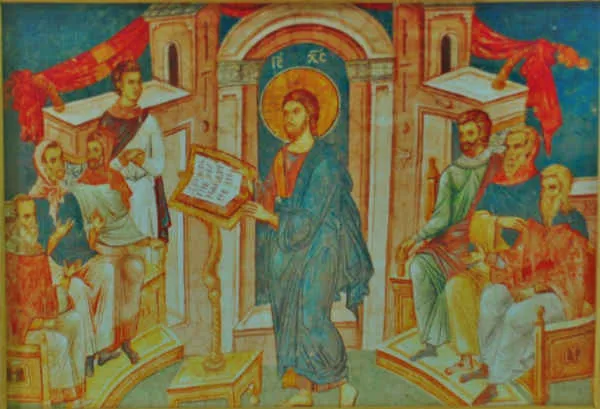Mark 5:7-9
Never Give Up on Another
What have you to do with me, Jesus, Son of the Most High God? I adjure you by God, do not torment me!” (He had been saying to him, “Unclean spirit, come out of the man!”) He asked him, “What is your name?” He replied, “Legion is my name. There are many of us.
Reflection:
To most people, such an encounter would be terrifying. This man whose words are recorded above was possessed by a multitude of demons. He lived on the hillsides among various caves by the sea, and no one wanted to go near him. He was a violent man, crying out day and night, and all the townspeople were fearful of him. But when this man saw Jesus at a distance, something amazing happened. Instead of Jesus being terrified of the man, the multitude of demons possessing the man became terrified of Jesus. Jesus then commanded the many demons to leave the man and enter a herd of about two thousand swine instead. The swine immediately ran down the hill into the sea and drowned. The possessed man returned to normal, becoming clothed and in his right mind. All who saw him were amazed.
Clearly, this brief summary of the story does not adequately explain the terror, trauma, confusion, suffering, etc., that this man endured during the years of his diabolical possession. And it does not adequately explain the grave suffering of this man’s family and friends, as well as the disorder caused to the local townspeople as a result of his possession. Thus, to better understand this story, it is useful to contrast the before-and-after experience of all involved. It was very difficult for everyone to comprehend how this man could go from being possessed and out of his mind to calm and rational. For that reason, Jesus told the man to “Go home to your family and announce to them all that the Lord in his pity has done for you.” Imagine the mix of joy, confusion and disbelief that his family would have experienced.
If Jesus could transform the life of this man who was completely possessed by a Legion of demons, then no one is ever without hope. Too often, especially within our families and among old friends, there are those whom we have written off as irredeemable. There are those who have gone so far astray that they seem hopeless. But one thing this story tells us is that hope is never lost for anyone—not even those completely possessed by a multitude of demons.
Reflect, today, upon anyone in your life whom you have written off. Perhaps they have hurt you over and over. Or perhaps they have chosen a life of grave sin. Look at that person in the light of this Gospel and know that there is always hope. Be open to God acting through you in a profound and powerful way so that even the most seemingly irredeemable person you know will be given hope through you.
Source: https://catholic-daily-reflections.com/2025/02/02/never-give-up-on-another-4/













